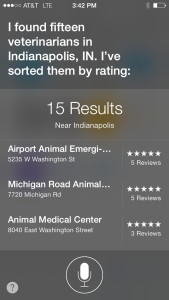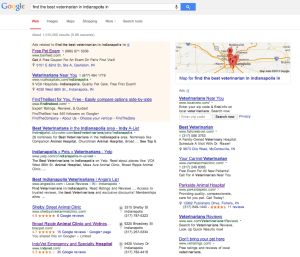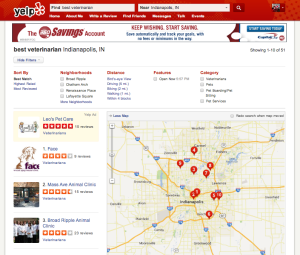 Everyone is talking about Google’s latest algorithm change, code named Hummingbird. This tiny little bird is out to change the way search works, so that it’s more in line with the way humans think and talk. “Will it work?”, I asked myself. After all, we’ve spent years searching online for things, using brief phrases and keywords. It’s almost as if the search engines have trained us to search in a certain way. But then I realized that more and more, we are searching in a significantly different way.
Everyone is talking about Google’s latest algorithm change, code named Hummingbird. This tiny little bird is out to change the way search works, so that it’s more in line with the way humans think and talk. “Will it work?”, I asked myself. After all, we’ve spent years searching online for things, using brief phrases and keywords. It’s almost as if the search engines have trained us to search in a certain way. But then I realized that more and more, we are searching in a significantly different way.
With the prevalence of Smartphones, and advanced speech pattern technologies (like Siri), people are now searching in a very different way. We are speaking our thoughts into our phone and asking for the results! Why is this significant? Because, instead of searching “veterinarian, indianapolis”, we are now saying to Siri, “find the best veterinarian in Indianapolis”.
Up until now, optimizing your site to rank high to certain keywords was the winning tactic. SEO gurus would stuff pages with keywords to get higher rankings, when the content wasn’t necessarily what the searcher was looking for. SEO has been a game, where manipulation could win. Google has said one of it’s primary philosophies and goals is to ultimately serve you, and that placement in search results offers relevant content, first and foremost. Google is using the Hummingbird algorithm to rank sites that have quality, relevant content and links to and from relevant sources ahead of sites that “stuff” their content with keywords.
I found the whole “Smartphone effect” very interesting, and decided to perform an experiment. I found myself speaking to Siri and asking her to “find the best veterinarian in Indianapolis, Indiana”. Here’s how she responded: 
Then, I went to my laptop and typed in the exact same phrase, and here’s what Google ranked for me: 
Hmmmm….not the same at all. These two searches weren’t even close. As I looked at them, I realized that Siri is using the Safari browser, and appeared to be using Yelp reviews to rank the practices. But, when I went to Yelp and did the search myself, this is what I found:
 This was really starting to get frustrating! I went back to my phone, thinking that if I told Siri to search using Google.com to find the best veterinarian in Indianapolis, it would look more like my laptop search. Here’s what I got:
This was really starting to get frustrating! I went back to my phone, thinking that if I told Siri to search using Google.com to find the best veterinarian in Indianapolis, it would look more like my laptop search. Here’s what I got: 
Again, not the same! My take-away from all this? SEO isn’t all it’s cracked up to be, and when Google makes changes to their algorithm, it throws the rankings into a tizzy. If Google is following it’s Mission, then the businesses that produce quality, relevant content that solves people’s problems will win the SEO game. It might take a while—-but it also takes a while to build the depth of content that will set your business apart.
My advice to veterinary practices? Keep blogging, keep creating content that answers questions and solves problems for pet owners, and keep asking clients for positive online reviews in many different places. Then develop and implement an overall strategy for your online presence that makes use of social media—it’s one very important aspect of what Google pays attention to, that I’ll talk about next time. If you do that, Hummingbird and Google will hopefully reward you!
